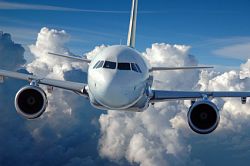

EasyJet has formed a partnership with the US firm Wright Electric, currently in the process of developing a battery-propelled aircraft for flights under two hours. This would enable the UK carrier to fly planes powered by batteries rather than petroleum on short-haul routes to destinations including Paris and Amsterdam.
The airline has cut carbon emissions per passenger kilometre by 31% between 2000 and 2016. The introduction of battery-powered planes represents the next step in making airlines less harmful to the environment, with easyJet's chief executive saying that the aerospace industry will be following the lead of the automotive industry in developing electric engines that cut emissions and noise.
Wright Electric is aiming for an aircraft range of 335 miles, which would cover the journeys of around one fifth of the passengers flown by easyJet. The US firm is aiming to produce a fully electric plane within a decade, with the ultimate goal of every short flight being electric within 20 years. They claim that electric planes will be 50% quieter and 10% cheaper for airlines to purchase and operate, a saving which could potentially be passed on to passengers.
Wright Electric, founded in 2016 by a group of aerospace engineers and battery chemists from organisations such as Nasa and Boeing, has benefited from its partnership with easyJet through an understanding of what is required to make the planes commercially successful. EasyJet's chief commercial officer commented on the opportunities afforded by changing technologies and attitudes, saying: "You're seeing cities and countries starting to talk about banning diesel combustion engines. That would have been unthinkable just a short time ago".